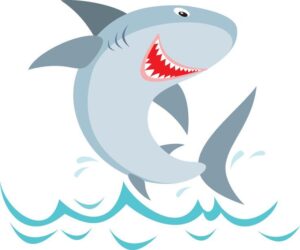
This is further to my earlier post on management titled “Shark in the tank”. Wherein, it was brought out that good leaders and managers, know when to put the shark in the tank, to maintain an optimum level of activity in the unit or organisation under them.
This write up draws inspiration, about smooth running of unit activities from the Wheel management of a car.
For a car to run smoothly it needs following aspects of wheel management:-
- Maintaining correct and same tyre pressure in all the wheels.
- Wheel alignment.
- Wheel Rotation.
- Wheel balancing.
- Spare Wheel.
Similar management is required for managing the human resource by the leaders and managers.
Maintaining Correct and Same Tyre Pressure in all the Wheels.
Making sure that the car tyres are inflated to the correct and same level is extremely important. This is essential to ensure safety, longevity and good vehicle handling characteristics.
Similarly, human resource in any group also need to behave in a conducive manner. At times factors like over/under confidence, excessive eagerness / callousness and ego etc. make individuals behave irrationally, ignoring the important principles of team work.
In a car, there is a necessity to periodically check the tyres and either inflate or deflate them to maintain same and optimum pressure in all tyres. Similarly, need arises in a group at times to give a boost (inflate) to some members by encouraging them. At the same time, there may be a requirement to control and regulate (deflate) others.
A good manager and leader should know when to do that. Special care needs to be taken while regulating and controlling, to avoid permanent damage to the enthusiasm. It is best to do it privately and by exercising sell type of leadership style (i.e. with a little bit of explanation).
Wheel alignment.
Car wheel alignment is essential for the vehicle to move steadily towards intended direction without pulling to one side.
Similarly it is important for all group players to work together towards the intended group or organisational goal.
This is one of the important task of the leader or manager, and needs constant effort to keep the team members together and focused.
Wheel Rotation.
Tyre wear and tear is never uniform on all four wheels of a vehicle. Hence in order to have uniform wear of all four tyres, it is advisable to interchange tyre positions periodically. Tyre rotation is very crucial for ensuring long life and better performance of the tyres.
In a similar way, human beings also need change and perform better with changing challenges. Stuck in any one type of job, they tend to stagnate with adverse effect on their performance.
At The same time, changes introduced too early or too often also are not good for the organisation. An effective leader knows when to introduce the change to avoid stagnation of its members.
Wheel balancing.
Wheel balancing refers to correcting the imbalance between the weights of the wheel and the tyre. Maintaining a balanced weight in the wheel / tyre combination is significant for a smooth and stable drive, less tyre wear and eliminating vibrations.
Similarly in a group functioning maintaining a balance between the task and the provision of wherewithal to execute it is very important. It is the job of the leader and the manager to provide the correct amount and quality of resources for the allotted task.
Spare Wheel.
A vehicle always has a spare wheel, to cater for unforeseen circumstances. The spare wheel also needs to be maintained in good state as any other wheel.
In a similar way in a group, it is good to have a standby person available for different tasks. The standby person needs to be aware of the task and its progress so that slot in is easy if the need arises.
Coming Up
Beer and the jar theory of management.
Suggestions and value additions are most welcome
Link to earlier post on Management Theory:
For regular updates, please register here


